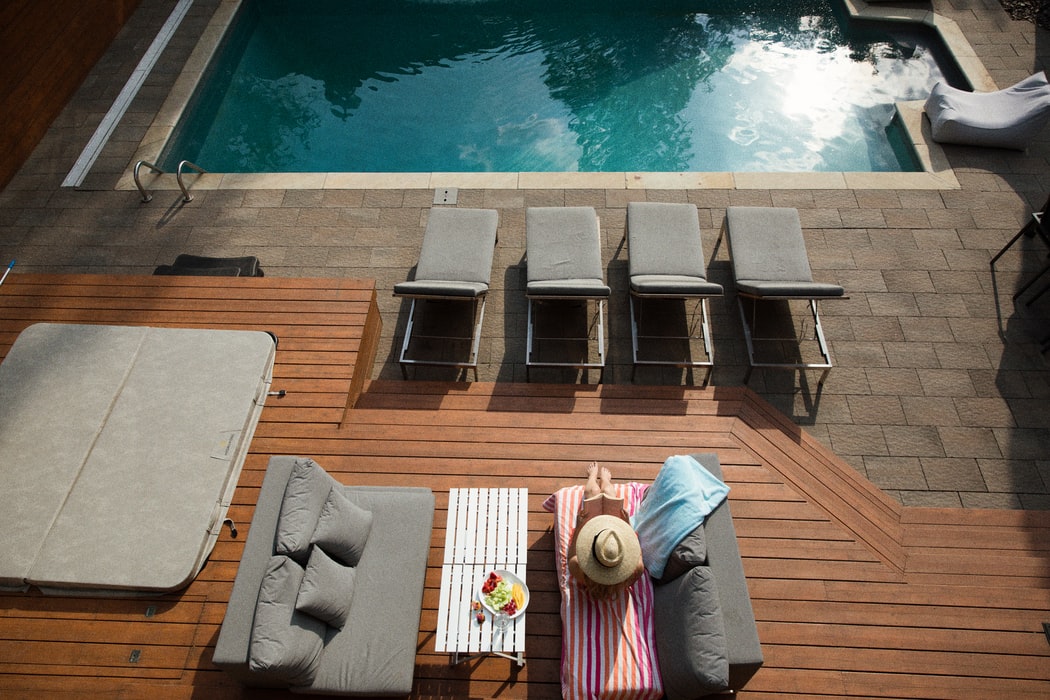
Working Collaborative Group Gatherings: A New Segment is Being Defined for Hotels
The concept of a hybrid workstyle is revolutionizing businesses and salespeople. Thanks to recent technological breakthroughs, companies have the option to hire employees from any geographic location, thereby reducing overhead costs associated with office space and equipment.
This shift has provided employees with unprecedented flexibility - resulting in better retention rates, less absenteeism, and improved engagement. It's a win for both employees and employers.
While offering a virtual or hybrid model has shown to be good for business, what companies are missing are those impromptu "water cooler chats." It's the collaborative in-person moments that help to strengthen work relationships and drive home company cohesiveness, it's just something that meeting via video chat can't replicate.
Enter: working collaborative group gatherings.
Cory Falter recently chatted with Daniel Melnyk, Commercial Strategist on the InnSync Show to dive deeper into this huge opportunity for hotels and explore how they can take advantage of this lucrative segment.
What Working Collaborative Group Gatherings Means for Hotels
What is it?
A working collaborative group gathering is a combination of a corporate retreat and a working session for remote-first or hybrid organizations to come together in person.
It consists of remote employees or executives from one or more companies who devote time to discuss their business strategies, work on projects, or brainstorm ideas for future growth — all without traveling for an extended period.
Daniel says, "these are companies that don't come together on a weekly basis or have a shared overlap of time in the office. People are craving that in-person get-together time, and this is creating a really interesting opportunity for hotels."
How did these group gatherings come about?
The idea of working in collaborative group gatherings arose as companies realized the benefits of hiring remote workers and having a hybrid workforce.
"It's less of a trend," Daniel says, "and more of a shift in how all-sized companies are going to be doing business from here on out."
With remote workers, companies can tap into a larger talent pool and hire employees from around the world, enabling them to access the necessary skills while reducing overhead costs associated with office leases and equipment.
Hotels can leverage this opportunity to create a unique experience for business travelers looking to engage in these collaborative group gatherings.
YOU MAY ALSO ENJOY: Wasting Time on Cheap Leads? Relationship Marketing Fills a Better Funnel
Why should hotel salespeople care?
Hotel salespeople should care about remote group gatherings because it represents a new and growing segment of business travelers. These groups come together with the purpose of connecting in person, and each member is typically traveling from different locations.
Daniel says, "You have some nice ancillary revenue opportunities, especially if you're a property with a lot of programming. Whether it's resort amenities or spas, or maybe you've got multiple dining outlets. I see it being more than just rooms and meeting room rentals."
By offering them an experience that combines accommodations, food & beverage, video conferencing, entertainment, and more – hotels can create a package that will help generate revenue.
Cory adds, "thinking about the opportunities that hotels could capture to get even more consistent business on the books by hosting regular sessions really adds to the value of leveraging remote group gatherings."
"There's a real opportunity for hotels to shine." Daniel says, "To drive that experience, loyalty, and repeat business."

How can hotel salespeople capitalize on this opportunity?
Hotel salespeople have an excellent opportunity to capitalize on this segment.
They should start by understanding the intent behind a gathering.
Daniel suggests that sales teams pick up the phone and call the person who booked the space to understand the goals for that gathering, who is attending, and what amenities or services they need. That way, you'll know how to tailor the space to best fit their needs. Additionally, they should get to know their target market and create packages that appeal to them. This could include offering special rates on extended stays and other packages that could entice them to return or refer their colleagues.
How can hotels prepare to facilitate these collaborative work gatherings?
Hotels can prepare for remote work gatherings in many ways.
First, they should ensure the space meets their guests' needs. This could include providing access to video conferencing software and ensuring they have plenty of outlets and that Wi-Fi is reliable.
Daniel suggests hotels consider the physical attributes of a property that will help to facilitate team gatherings, such as natural light, modular furniture on wheels, ergonomic office chairs, USB ports and power ports, laminate tables, and not traditional banquet furniture.
He says, "Furniture should be conducive to long days of mobility, collaboration, and productivity."
Next, they should have a plan for arranging team-building activities that can be done remotely. This could include scavenger hunts, online escape rooms, virtual cooking classes, etc.
Finally, they should consider offering food and beverage packages that can be easily ordered on an app and delivered directly to the room. This will help ensure that teams have a break from their work but can still stay productive.
By understanding the needs of remote workers, providing them with tailored services, and creating unique experiences for them, hotels have the potential to capitalize on this emerging trend and create a valuable offering for their guests. By doing so, they can help foster collaboration and creativity as well as build loyalty.
With the right strategies, hotels can become essential to the remote and hybrid work movement.




